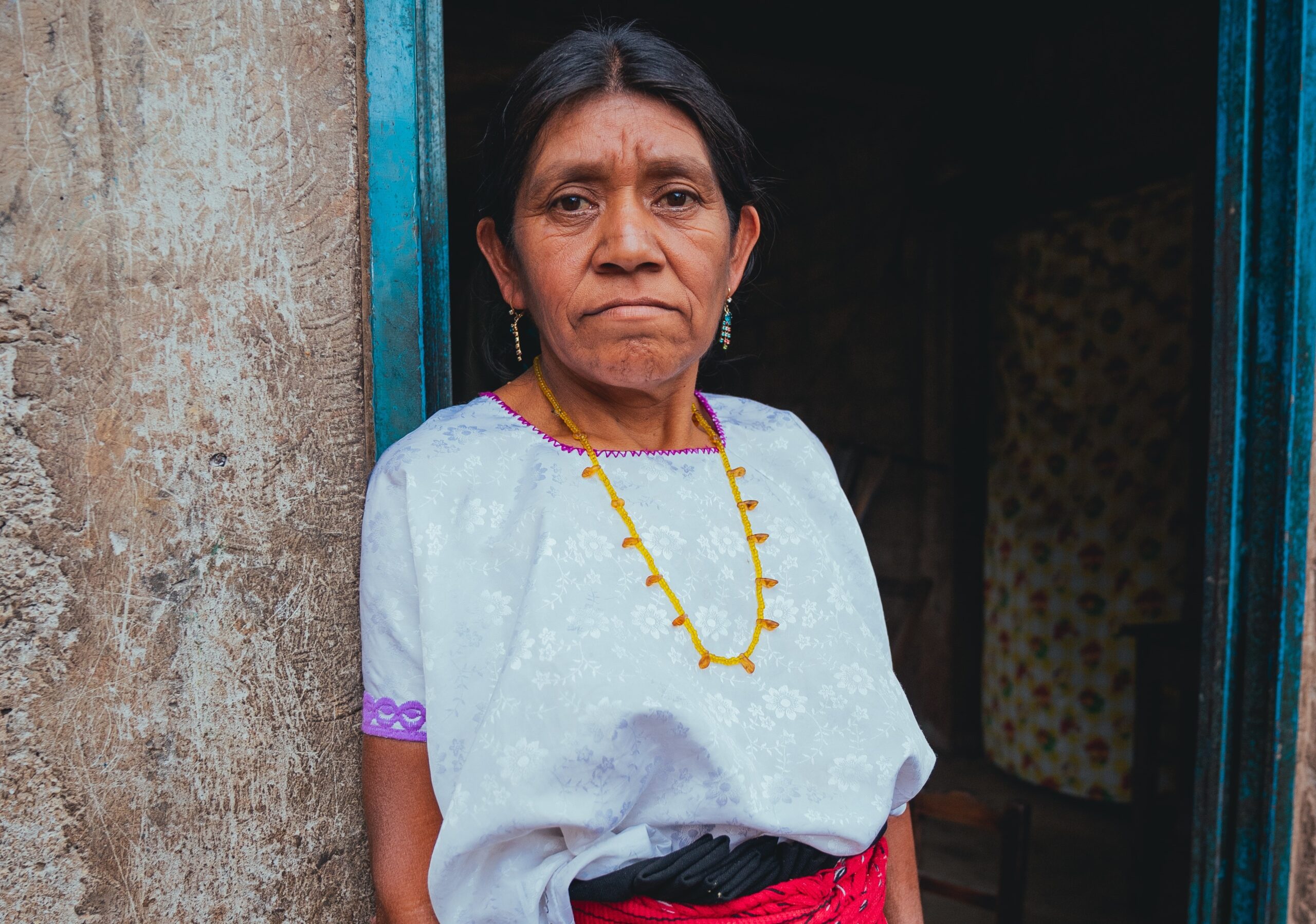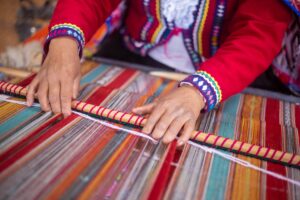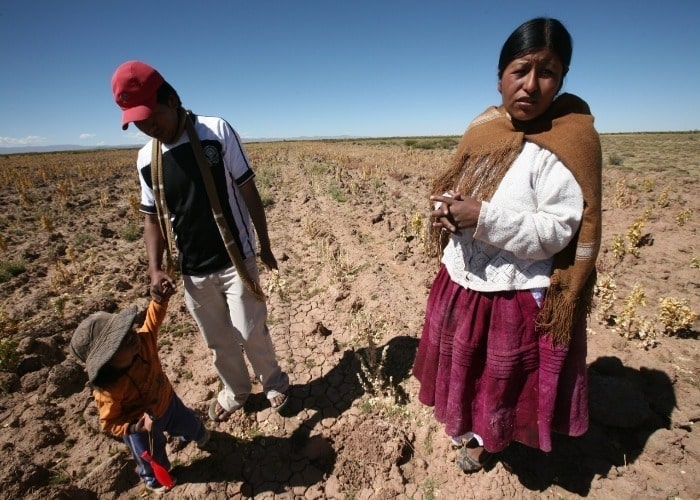On the International Day of the World’s Indigenous Peoples, Dr Chris O’Connell writes that supporting indigenous peoples, protecting their rights, and amplifying their voices are more important than ever.

The dangers posed by the climate crisis are clear to see following the series of extreme weather events in recent weeks, and in light of the Intergovernmental Panel on Climate Change’s devastating new report on the emergency.
While the impacts of climate change affect us all, indigenous peoples are particularly vulnerable due to their dependence on natural resources for their traditional livelihoods and habitats.
Early this year, Anti-Slavery International published my report, From a Vicious to a Virtuous Circle. It revealed that climate change is not the only threat facing indigenous peoples. Drawing on research from Bolivia and Peru, it found that extractive activities like mining and industrial agriculture also negatively affect indigenous people’s livelihoods through land grabbing, pollution, deforestation, and overuse of scarce water.
This combination is contributing to the forced displacement of indigenous people, exposing them to the risk of human trafficking for labour or sexual exploitation.
As research from the International Labour Organization (ILO) notes, indigenous migrants are made more vulnerable to exploitation by discrimination and dislocation from their territories. An example of these dynamics centres on the disappearance of Bolivia’s second-largest lake (Lago Poopo) – originally in 2015, and again in recent weeks.
Originally attributed to climate change, the lake’s disappearance caused the loss of an estimated 200 animal species, including many fish. And with the fish went the livelihoods of the Urus-Matos indigenous people, whose name translates as people of the water. Unable to continue this way of life, many were forced to migrate to cities or abroad in search of subsistence.
According to research participants, many were forced into exploitative, dangerous, and degrading labour in agriculture, textiles, construction, and domestic work. The Urus-Matos have become a source of exploitable “cheap labour”, according to a local indigenous rights and environmental NGO.

The vicious circle
Climate change played a clear role in the disappearance of Lago Poopo, with rising temperatures causing high levels of evaporation. But this is not the full story.
Extractive activities and export-orientated agriculture significantly diminished the lake by diverting waters for irrigation and mining. Furthermore, pollution from nearby mines filled parts of the lake with toxic residue. As a result of this situation, many displaced Urus-Matos have been forced to seek work in these same mines. This has sadly further contributed to the destruction of their way of life.
This tragic irony is not lost on them, say rights activists:
“They know that there are a lot of problems from mining, especially for the lake water … but they cannot say it openly, they cannot make a complaint, because they say: ‘we are also working there’”.
This is the vicious circle of climate change, environmental destruction, and contemporary slavery the report highlights.
Nevertheless, it is also clear that indigenous peoples are far from helpless victims in this situation. There is increasing international acceptance that indigenous livelihoods and knowledge can make important contributions to combating the climate and biodiversity crises.
A 2017 ILO report noted that Brazilian forests managed by indigenous peoples produce 27 times less emissions than others. A recent report by the UN also found significantly lower rates of deforestation in indigenous and tribal territories, highlighting their role as ‘Guardians of the Forest’.
Other research points to the sustainable nature of indigenous traditional food systems, and to the value of ancestral knowledge for preserving and restoring biodiversity. There is also evidence that indigenous self-governance can reduce vulnerability to contemporary slavery.
Picture by Sean HawkeyReturning to Bolivia, the bondage and captivity of indigenous Guaraní was once considered the most dramatic case of forced labour in the region. But years of indigenous mobilisation helped secure land titles and limited self-government that significantly reduced the prevalence of contemporary slavery.
The impact of Covid-19

However, even as the world wakes up to the importance of indigenous peoples, they are facing heightened environmental and human rights risks due to Covid-19.
As the most marginalised sector in many societies, indigenous peoples lack social protections and in some cases face barriers to receiving vaccinations. What’s more, states and businesses have taken advantage of the health emergency to advance their extractive agendas by increasing deforestation, weakening environmental regulations, and passing new laws that violate indigenous rights.
The clearest example is Brazil, where the Bolsonaro government seeks to “run the cattle” through social and environmental protections to benefit agribusiness. Indigenous peoples also face rising levels of violence, including extra-judicial killings linked to mining companies, agribusiness and state forces.
As the 2019 Global Witness report noted, those who are the “first line of defence against the cause and impacts of climate breakdown” are those most threatened.
Indigenous peoples find themselves at a strange juncture. On the one hand: their activism, knowledge and systems provide a source of hope for humanity. On the other: their livelihoods, rights and survival are increasingly threatened.
On this International Day of the World’s Indigenous Peoples 2021, the anti-slavery sector therefore must use its influence to support indigenous rights and ensure their voices are heard.
This research has received funding from the Irish Research Council and from the European Union’s Horizon 2020 research and innovation programme under the Marie Sklodowska-Curie grant agreement No. 713279.